- Sedans might be slowly dying out, but these three have stood the test of time.
- We wrangled the Sonata Hybrid, Accord Touring Hybrid and new Camry XSE Hybrid for a 3-way fight.
- Which is best? Read or watch on to find out.
Toyota Camry vs. Honda Accord vs. Hyundai Sonata: Hybrid Sedan Head-to-Head
Of these three heavy hitters, which hybrid sedan is best?
We've said it before, and it's no exaggeration: Sedans are a dying breed. But the Toyota Camry, Honda Accord and Hyundai Sonata are among the few that have withstood the test of time, and for the 2025 model year not one of them will be more than a year-and-a-bit old. This comparison is as apples-to-apples as it gets. All three are front-wheel drive, all three are hybrids, and all three are the most expensive and feature-laden versions of these cars you can buy.
Lumping these stalwart sedans together was easy, but getting a definitive winner led to one of the closest calls we've ever made. So, which is best? Let's find out.
Hybrid road wars
The Sonata is technically the oldest of the group, but for 2024 it gets a hefty refresh that brings a number of key changes. The front and rear fascias get entirely new looks and the redesign is pretty successful to our eyes — the Sonata no longer looks like something that lurks at the bottom of the ocean. The refresh also brings with it a reworked interior that includes a new steering wheel, a touchscreen for the climate controls, and a continuous curved panel atop a redesigned dash that houses two 12.3-inch displays.
The hybrid powertrain, however, remains entirely unchanged. The Sonata still uses a 2.0-liter four-cylinder engine paired to an electric motor and a six-speed automatic transmission. Total output is rated at 192 horsepower and 151 lb-ft of torque, far and away the lowest numbers in this trio. It shows in our testing, too. The Sonata hauled itself from 0 to 60 mph in a languid 8.5 seconds and through the quarter mile in 16.5 seconds at 85.6 mph.
Sometimes these cars feel quicker in the real world than their test numbers would lead you to believe, but that's absolutely not the case with the Sonata. Passing power is lacking, and its handling balance has the same nonchalance, even for a hybrid sedan with zero sporting intentions. The Sonata feels ponderous and boaty due to imprecise and artificial steering. It's relatively comfortable thanks to relatively small 17-inch wheels with massive sidewalls, but it errs on the side of floaty when going over lumps and undulating roads.
That said, the Sonata is the most efficient car here. On our test route, the Sonata managed 51 mpg over 118 miles of mixed highway/city driving. The Camry came in a close second at 47 mpg, while the Accord only managed 42 mpg on the same loop. Despite being the least efficient, the Honda Accord is the sharpest of the group when the going gets twisty.
Even though top four versions of the Accord's six available trims are now hybrids, Honda's flagship hasn't lost its dynamic prowess in the transition to fuel-sipper. How well it drives is down to a mix of the way Honda sets up its sedan and the Michelin Primacy MXM4s the Accord wears, which pulled the highest lateral g average of the test at 0.91. Everyone who drove the Accord praised its handling. Director of Editorial Steven Ewing said, "The Accord still feels like the driver's car of the bunch, though the Camry is closer than ever. Honda just knows how to do steering and suspension tuning so much better, and it shows in the Accord."
This comparison doesn't feature sports cars, but you didn't come here in search of lazy SUVs. How your nearly $40,000 sedan drives might just be nearer the top of your list of priorities, and that's why it matters so much that the Accord is the best to pedal, even if the ride is a tad firm. It's also the quickest, making the most of its 204 hp and hitting 60 mph in 7.3 seconds and finishing the quarter mile in 15.8 seconds at 85 mph.
The Camry, now hybrid only for 2025, splits the difference between the two, but in the best way possible. Its 0-to-60-mph time of 7.8 seconds is right smack in the middle, but it is the fastest through the quarter mile with a trap speed of 89.2 mph, likely thanks to it having the most horsepower, at 225. It also stopped from 60 mph in the shortest distance — 118 feet for the Toyota, 121 feet for the Honda, and 126 feet for the Hyundai.
On the road the Camry feels about as quick as the Accord and nowhere near as haggard as the Sonata. It might not be the best companion for a winding road, but it strikes the best balance between compromise of ride comfort and handling. For 2025 the Camry gets a reworked suspension and the difference is obvious — it handles normally crashy bumps and ruts with aplomb without being as firm as the Honda or lost at sea as the Sonata. The steering feels dead-on accurate and the brake pedal in the Camry is far and away the best. It's the most linear and there's no clunkiness in the handoff from regenerative to friction braking as there is in the Honda.
On the road, the Sonata is a distant third. The Accord is the best to drive if you want something with real spirit, and the Camry has the best combination of comfort and capability. Not only that, but the Camry is the only car here that has all-wheel drive as an option for those who live in snowy states.
Inside story
There's a lot to like about the cabins of all three cars. The Sonata's screens are clear, bright, and supremely easy to use thanks to an entirely new layout that uses sizeable icons for menu options. The updated HVAC panel takes away most of the buttons, leaving just two knobs for the two-zone climate control. The arrangement of the touch controls is logical, and despite lacking any sort of haptic feedback, the panel is easy to use.
The Sonata is not without drawbacks, though. There is a single, massive piece of plastic that spans across the entire dash. It's made to look like bamboo (we think), but it feels entirely out of place in a cabin that features no faux wood (plant?) trim anywhere else. It's the sort of garnish contemporary apartment designers toss in at the last second and go, "Look — it has style now." Problem is, it doesn't. It cheapens the Sonata's interior when the leathers on the seats and dash already don't feel quite as posh as what's in the Camry or Accord.
Honda, for its part, has the least contemporary design of the trio, not to mention it's nearly identical to the Civic, CR-V, HR-V and Pilot. But its material choice and the overall build quality are top-notch. All of the controls you want to be physical are physical — there are knobs and buttons galore inside. The seating position is bang on, too. Honda knows how to make you feel like you're in a car, not on it, and the Accord has the sportiest cockpit of the bunch.
There aren't many downsides until you start fiddling with the Accord's infotainment screen. While the integrated Google Assistant and Bose sound system are great, Honda locked these, ventilated seats, heated rear seats and a head-up display, behind the top-spec Touring trim we had in for our test. The obvious omissions on lesser trims are criminal. There are no option packages on any other trim that bring these features with them, and that means you need to spend at least $39,985 to get the good stuff. That's a pretty penny for items Honda can easily make available as options. Also, no heated steering wheel, even for 40 grand? Come on.
Toyota, on the other hand, doesn't have the same value problem. While, yes, there are features you can only get on the top-spec models, there are plenty of ways to get the sought-after features for less. Want a heated steering wheel? That's available as an option on every trim. A massive sunroof is available on the base model. Most features are optional, meaning you can have the top-of-the-line XSE model we had in for our test with as many or as few creature comforts as you like, and at the end of the day that can save you money.
What you don't need to opt for is the Camry's excellent cabin. It represents a huge step up from the last-generation model everywhere. Senior Reviews Editor Clint Simone said, “The Camry’s interior is the closest it’s ever felt to Lexus quality,” and that ain’t hyperbole. The Camry is quieter on the road than the other two, all the touch points are soft, the design is smart and cohesive, and the cabin's controls are easy to get the hang of quickly. We don't love the piano black plastic used to dress up the passenger's side of the dashboard, but at least there was an attempt to do something that matched the rest of the interior vibe (unlike in the Hyundai and its dash treatment).
Ewing puts it best: "This Camry [is] a big step forward. It reminds me a lot of when the fourth-gen Camry debuted in 2007 and reignited the midsize sedan wars. For the first time in a long time, it feels like this segment is starting to heat up again, even as many automakers pull out of the class."
Safety tech time
As safety tech goes from optional to ubiquitous, there's a small arms race forming among manufacturers. But Toyota does safety tech best.
"The standout improvement in the Camry is the integrated tech and safety equipment," Simone said. "An area where the Camry used to struggle is now a category that it owns." From its long list of standard safety kit to the way it integrates its more advanced driver aids into the driving experience, the Camry is just better than the rest. Toyota has come a long way in just one generation, and that's the benefit of the brand regularly evolving its Safety Sense suite and bestowing it on every single one of its new models as standard.
The Honda's a close second, however. It readily displays usable information and its sensors are nearly as well calibrated as the Toyota's — though its emergency braking warnings do fire a little too early for our liking. The Hyundai, again, falls back into third place. Its lane keeping system feels like it's constantly trying to wrench the wheel from your hands when you so much as dither from the center of a lane, and its adaptive cruise control can lead to a bit of ping-ponging between lane lines.
In the end …
Before we were through with our test, Senior Reviews Editor Brian Wong asked a tough question: "Would you be unhappy with any of the three?" And in isolation, the answer is no. These are three great sedans, and we're lucky the class is so competitive. But put them together and the results are clear.
Third place: Hyundai Sonata
The Hyundai is a valiant effort but a distant third. It proved to be the most efficient, netting 51 mpg on our test loop, and features the lowest cost of entry at $38,350 despite its healthy list of features.
Second place: Honda Accord
The Honda is the best to drive but ended up being the worst value because of how top-heavy its trim structure is — not to mention its $40,440 as-tested price. Its exterior design is also the most mundane of the three, and we wish Honda hadn't sapped the previous generation's sharp character from the new model.
First place: Toyota Camry
The winner, then, is the 2025 Toyota Camry. It's more well rounded, offers a better value proposition across its range of trims, and features the best interior of the three cars here. It's nearly as pricey as the Accord at $39,770 as tested, but remember you get to pick and choose your options, which means it can be far cheaper based on your needs. Throw in all-wheel drive the others can't have at all, and the Camry gets the gold.
So the Camry wears the crown once more, but in a class of sedan that shows fewer signs of waning than any other, who knows how long it'll hold the throne.
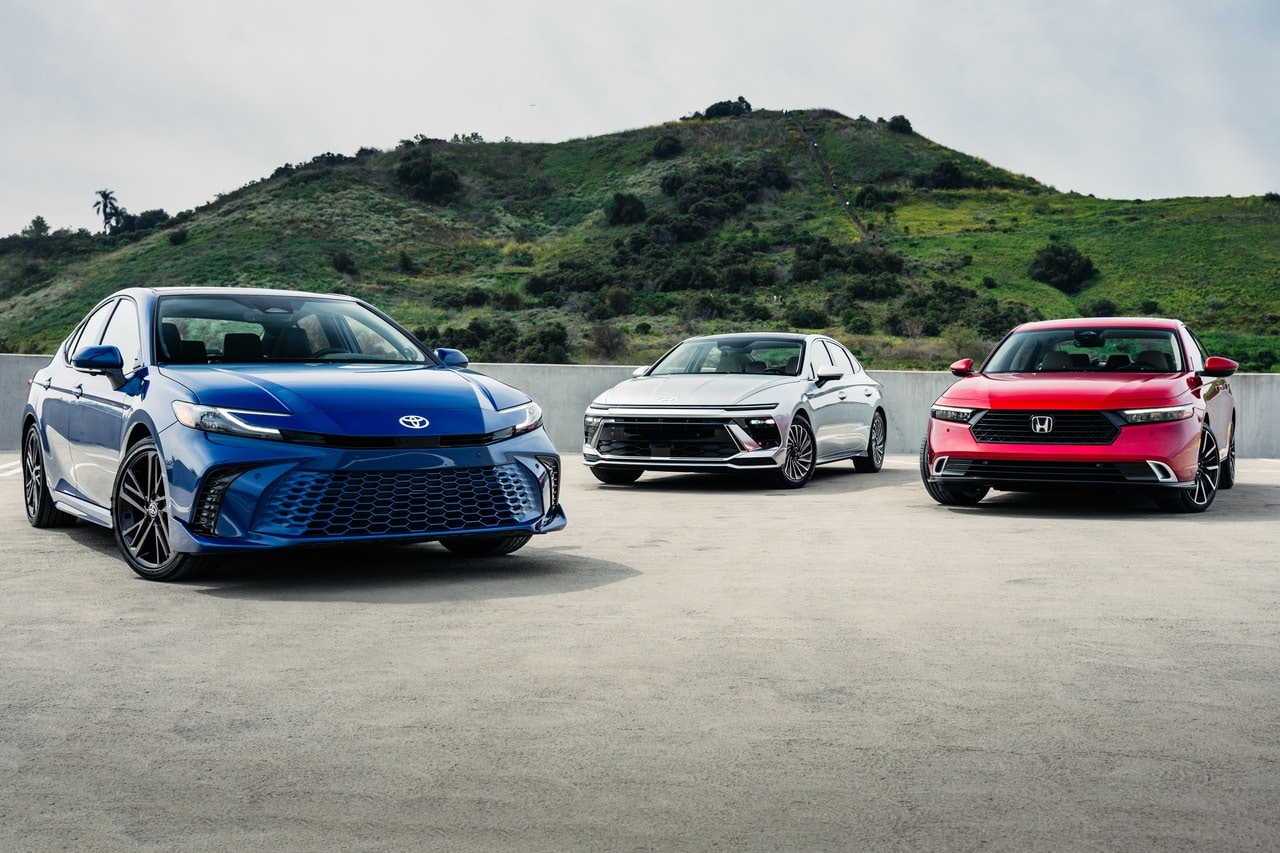


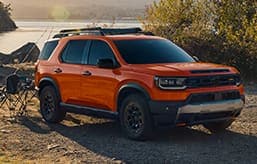

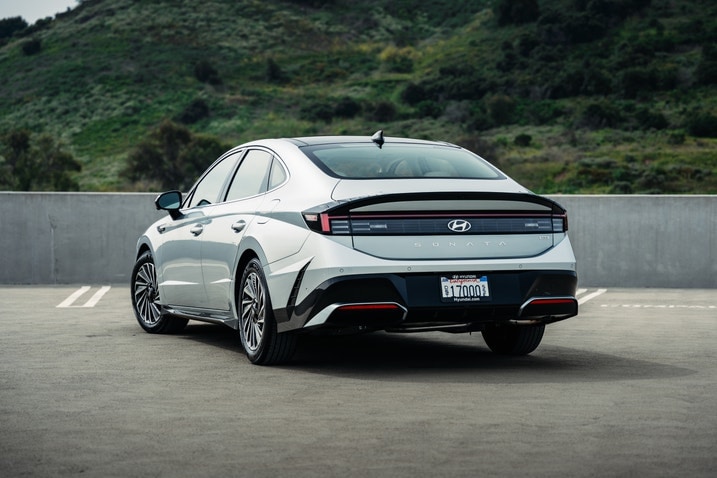
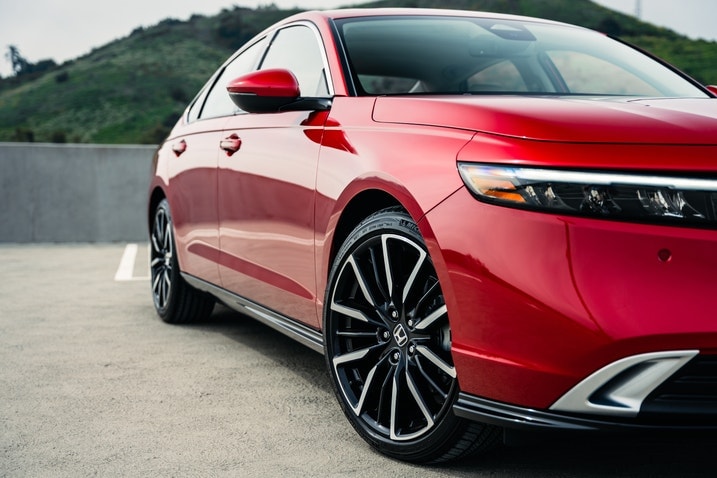
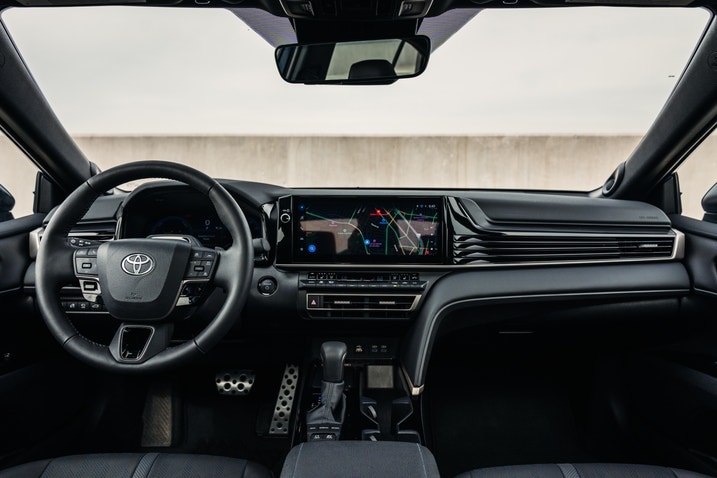
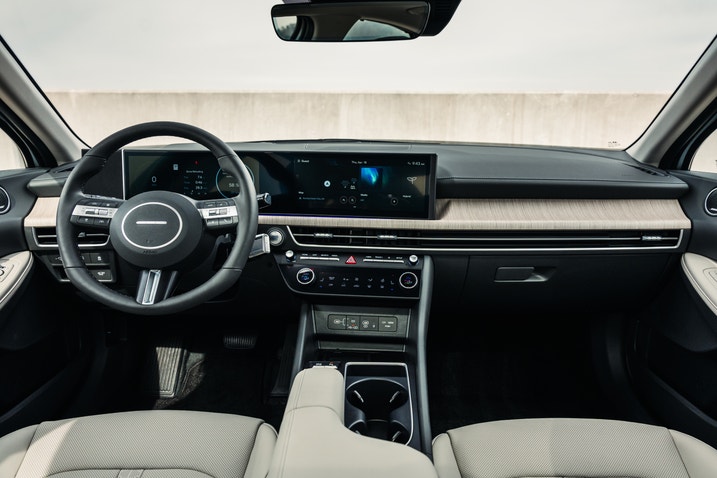
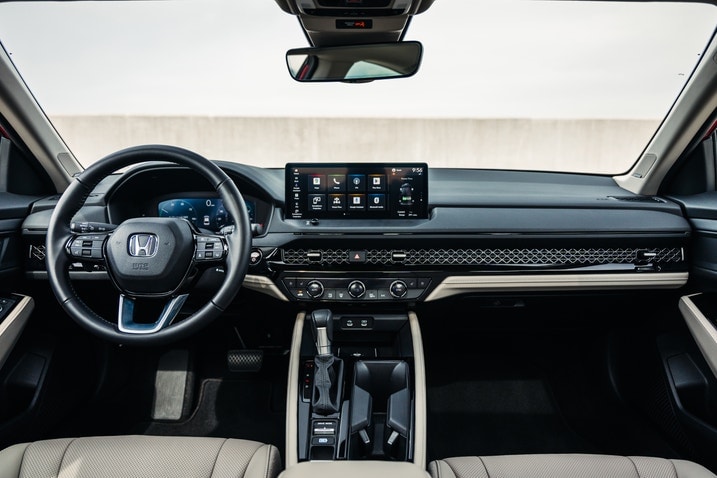
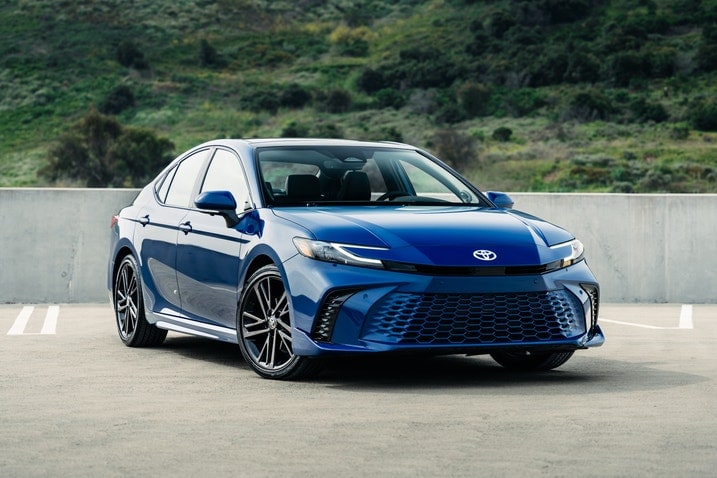
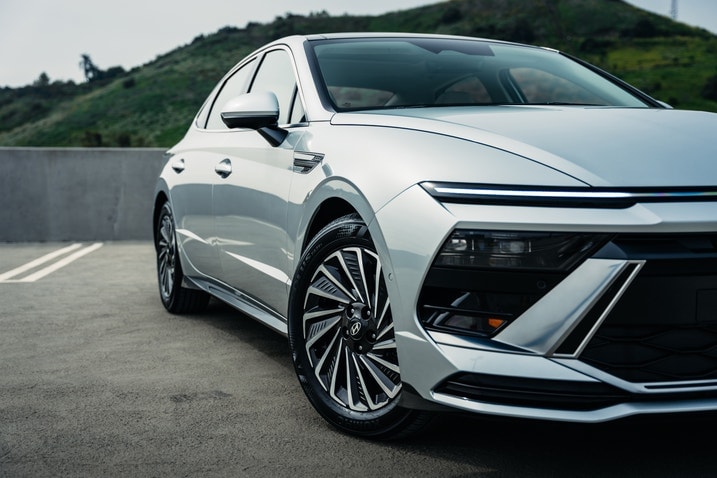
 by
by  edited by
edited by